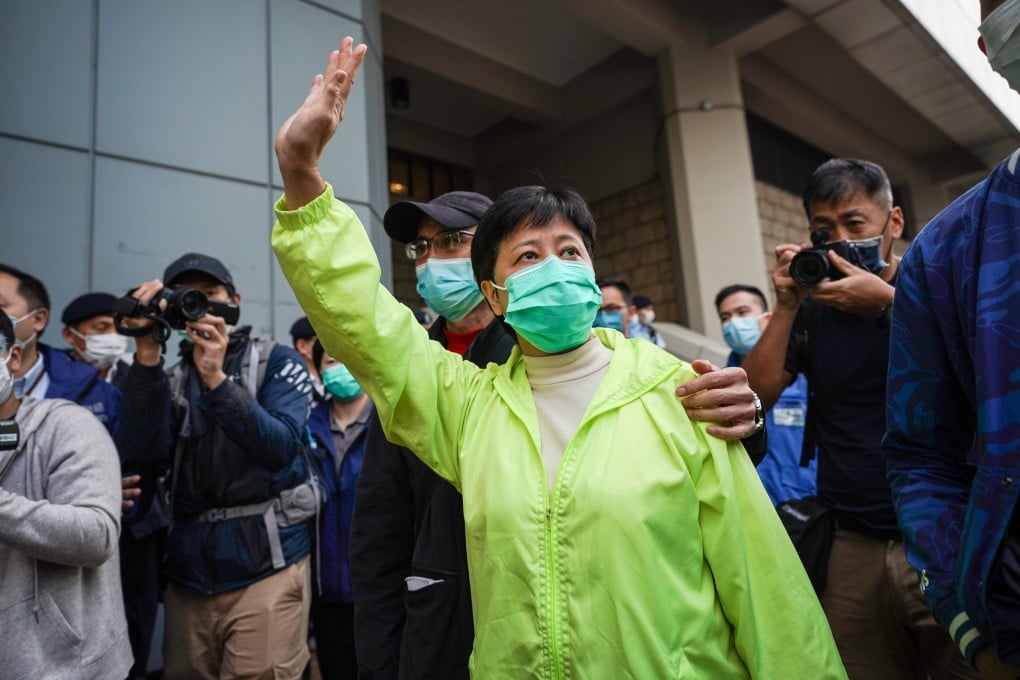Hong Kong judge explains bail decisions in city’s largest national security law case involving 47 politicians and activists
- Madam Justice Esther Toh lays out reasons for granting bail to Democratic Party lawmaker Helena Wong and district councillor Cheng Tat-hung
- Legislation’s stringent bail test means defendants are more likely to be held in remand until trial

Madam Justice Esther Toh Lye-ping on Thursday laid out why former Democratic Party lawmaker Helena Wong Pik-wan, and opposition district councillor Cheng Tat-hung, overcame the law’s stringent bail test, while another councillor, Ng Kin-wai, had his bail revoked.
They were among the 47 politicians and activists charged with subversion over a process authorities said was part of a plot to paralyse the government and topple the city’s leader, Carrie Lam Cheng Yuet-ngor, by winning a controlling majority in the Legislative Council.

Little was known publicly about the rationale behind the two decisions in those bail proceedings, until Toh handed down judgment and lifted reporting restrictions, upon the application from several media outlets, including the Post.
The key question was whether there were sufficient grounds to believe the defendant would not continue to commit acts endangering national security.
Toh said the test was “a predictive and evaluative exercise”, which required taking into account all available materials, including counsel submissions, documents and videos.
Prosecutors have accused the 47 opposition politicians and activists of taking part in “a massive and well-organised scheme” to “achieve a common criminal purpose” to undermine the proper functioning of Legco, so as to paralyse the Hong Kong government’s operations and eventually compel the chief executive to resign.